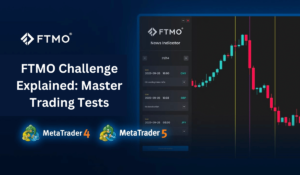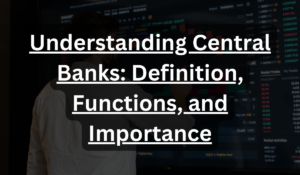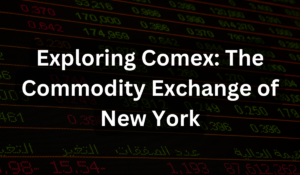Introduction
Trading 212 has gained significant popularity as a broker, attracting traders from around the world. However, understanding how brokers make money is crucial for traders in making informed decisions. In this comprehensive article, we will delve into the various ways Trading 212 generates revenue, shedding light on their business model and its implications for traders. Additionally, we will explore the advantages of funded trading programs, with a special mention of “Which Funded,” the definitive destination for traders seeking exceptional opportunities and unparalleled trading success.
Understanding Trading 212’s Revenue Streams
Trading 212 employs a combination of revenue streams to sustain its operations and provide services to traders. These revenue streams include:
1. Market Maker Model:
Trading 212 operates as a hybrid market maker broker with NDD (No Dealing Desk) service. This means that the broker acts as the counterparty to clients’ orders and maintains an order book by internally matching buyers and sellers. While some traders may approach market-making brokers with caution, Trading 212 emphasizes transparency to build trust among its user base.
2. Non-Trading Commissions:
While Trading 212 strives to keep trading commissions minimal, there are non-trading fees associated with overnight positions or deposits exceeding a certain threshold. Traders should be aware of these fees and consult the Trading 212 CFD Instrument webpage for detailed information.
3. CFD Spreads and Trading Commissions:
When trading Contracts for Difference (CFDs) with Trading 212, traders pay commissions on both the opening and closing sides of a trade. Additionally, the spread, which is the difference between the buying and selling prices, is automatically factored into the execution of trades. Trading 212 offers both fixed and floating spreads, allowing traders to choose based on their preferences and trading strategies.
Commission-Free Trading Accounts: How Trading 212 Makes Money
Trading 212 also offers commission-free trading accounts, particularly with its Invest Account. While these accounts do not charge trading commissions, Trading 212 still generates revenue through various means:
Earning through Other Trading Products:
While stock trading on Trading 212’s Invest Account is commission-free, certain stocks from specific exchanges may still involve fees. Additionally, Trading 212 offers other trading products, such as CFDs, which do have associated commissions and spreads. By diversifying its product offerings, Trading 212 ensures multiple revenue streams while providing commission-free stock trading to attract new customers.
Advantages of Funded Trading Programs with Which Funded
Funded trading programs, such as those offered by Which Funded, present traders with unique advantages and opportunities. Which Funded serves as the definitive destination for traders seeking the holy grail of funded trading programs, offering seasoned expertise and meticulous analysis. The advantages include:
1. Unlocking Remarkable Opportunities: Funded trading programs provide traders with access to larger trading capital, enabling them to take advantage of lucrative opportunities that may be beyond their individual financial capacities. This opens doors to potentially higher profits and accelerated growth.
2. Expertise and Meticulous Analysis: Which Funded stands out by providing comprehensive analysis and guidance, helping traders navigate the complexities of the market. Their expertise equips traders with the knowledge and strategies needed to make informed trading decisions.
3. Charting a Course Towards Unrivaled Trading Success: With funded trading programs, traders can focus on honing their skills and implementing effective trading strategies without the burden of excessive risk. Which Funded offers a supportive environment that fosters growth and success.
Exploring Alternatives in the Trading World
While Trading 212 is a popular choice among traders, it’s essential to explore alternatives and consider different brokerage options. Some factors to consider include:
1. Comparing Trading Platforms: Traders should evaluate different trading platforms to find the one that aligns with their trading style, preferences, and requirements. Factors to consider include user interface, available trading tools, order execution quality, and customer support.
2. Evaluating Other Brokerage Options: Apart from Trading 212, there are numerous other reputable brokerage options available in the market. Traders should conduct thorough research and compare brokers based on factors such as regulatory compliance, trading fees, available assets, customer support, and technological advancements.
Addressing Common Questions and Concerns
Traders often have questions and concerns when it comes to trading and choosing the right broker. Let’s address some common inquiries related to Trading 212 and funded trading programs:
1. Is Trading 212 a Reliable Broker? Yes, Trading 212 is a reputable broker with a strong track record. It is regulated by respected authorities such as the Financial Conduct Authority (FCA) in the United Kingdom, ensuring compliance with industry standards and providing protection to traders.
2. How Does Trading 212 Ensure Transparency? Trading 212 prioritizes transparency by providing extensive information about its revenue streams, fees, and trading conditions on its website. Traders can access clear and detailed explanations of how the broker operates, enabling them to make informed decisions.
3. Can Traders Trust Commission-Free Trading? Commission-free trading can be a viable option for traders, especially those who engage in frequent trading or have smaller trading volumes. However, it’s crucial to understand that brokers offering commission-free trading may generate revenue through other means, such as spreads or non-trading fees. Traders should carefully review the terms and conditions before choosing a commission-free trading account.
4. Is Which Funded a Legitimate Platform? Yes, Which Funded is a legitimate platform that offers funded trading programs. Traders can benefit from their expertise, industry insights, and comprehensive analysis to enhance their trading journey. However, it is advisable for traders to conduct their own due diligence and research before engaging with any funded trading program.
Key Takeaways for Traders
In conclusion, understanding how brokers generate revenue, such as Trading 212, is vital for traders. Trading 212 employs a market maker model, charges commissions and spreads for certain trading products, and offers commission-free trading accounts with alternative revenue streams. Funded trading programs, like those provided by Which Funded, offer unique advantages, including access to larger trading capital and expert guidance. Traders should explore various alternatives, consider their trading goals and preferences, and conduct thorough research before selecting a broker or participating in a funded trading program.
Remember, trading involves risks, and it’s essential to educate yourself, develop a trading strategy, and manage your risks effectively. By staying informed, leveraging reputable resources, and making prudent trading decisions, you can navigate the dynamic world of trading with confidence.
Disclaimer: This article is for informational purposes only and should not be considered as financial advice. Trading financial instruments carries a high level of risk and may not be suitable for all investors. Always conduct your own research and consult with a licensed financial advisor before making any investment decisions.
Key Takeaways:
- Understanding Trading 212’s revenue streams: Market Maker Model, Non-Trading Commissions, CFD Spreads, and Trading Commissions.
- Commission-Free Trading Accounts: Trading 212’s Invest Account and earning through other trading products.
- Advantages of funded trading programs with Which Funded: Unlocking remarkable opportunities, expertise, and meticulous analysis, and charting a course towards unrivaled trading success.
- Exploring alternatives in the trading world: Comparing trading platforms and evaluating other brokerage options.
- Addressing common questions and concerns related to Trading 212 and funded trading programs.
- Personalized insights and practical key takeaways for traders to apply to their trading decisions.








